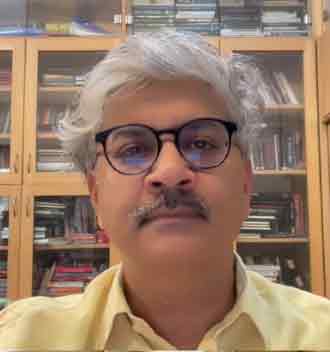The Financial Literacy course will provide a comprehensive view of personal finance and financial investments to the FLAME University Undergraduate students. It will also familiarise the learner with various topics such as capital markets, personal savings, role of borrowing, the accounting language, asset classes – equity, fixed income, real estate, commodities etc., asset diversification, investment options, wealth creation, etc.
This session mainly focused on how to process large information available on the internet and from various other sources, the speaker discussed various principles of effective learning and how one can retrieve information, remember what we already know and make relevant connections to enhance our learning and memory retention. He also discussed the Zettelkasten method and its advantages and the different kinds of notes – Fleeting, Literature and Permanent.
Mr. Jana Vembunarayanan is a Senior Director of Engineering at LinkedIn, building software that helps millions of people to find a job and thousands of companies to hire talent. Mr. Jana is an avid reader, enjoys learning from multiple disciplines, and generously shares his knowledge through his blog. He loves learning about different business models, and is a firm believer in building wealth by holding equities perpetually.
Mr. Bakshi, explained the power of compounding and how it creates a large effect on the small habits of saving, or reading etc. He also covered how the simple terms such as reduction and inversion learnt during the school days are helpful to a person throughout their life. He also explained Prospect Theory and human behaviour when the magnitude of loss is large versus small. He quickly covered Bayes theorem and connected it with how recent events impact our decisions based on the revised probabilities of outcomes.
Mr. Sanjay Bakshi is an Adjunct Professor at Management Development Institute, Gurgaon, where he teaches MBA students a popular course titled “Behavioral Finance & Business Valuation (BFBV)”. Sanjay is also Managing Partner at ValueQuest Capital LLP a value investing firm based out of New Delhi.
Session 03 | Know Your Country – How Simple Ideas Shape Our Life & Business

Saturday, 16th January 2021



Speaker
Mr. G. Maran
Triggered by dramatic changes in demography of new India, he set up a team to undertake a detailed study on varying patterns of how India eats, drinks, sleeps, celebrate, travel, earns, and saves. He loves sharing interesting inferences from these studies that help us understand how we have evolved so far and shaped our thoughts on how our country is likely to evolve in near future. Being aware of such trends gives us an edge we can get no other way, a priceless edge that helps us make better choices be it in our career or investments.
Maran began his career with a stockbroker in Madras Stock Exchange in 1992. He co-founded Unifi Capital in 2001 to specialize in investment opportunities that larger Institutions ignore. Over the last 20 years, he has spearheaded Unifi’s thematic style of investing in Indian businesses.
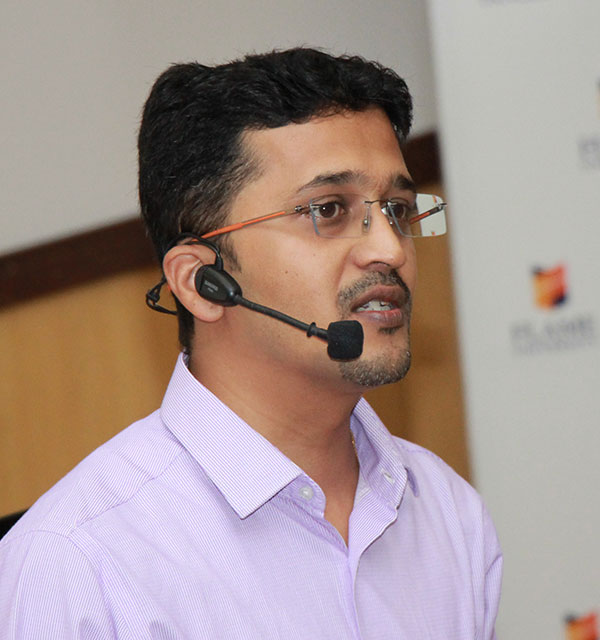
Speaker
Mr. Neeraj Marathe
Mr. Marathe began the session with a few basics of accounting and then proceeded to explain how an Income Statement and Balance Sheet appears, further he explained with a few examples about when should revenue be recognised, how does one look at a companies' ratios and do profit margins represent the true picture of the company financials.
Neeraj is a Pune based investor. He has been a full time participant in the capital markets since 2002. He tries to practice value-based investing. As a hobby, Neeraj has taught in various B-schools as a visiting faculty from 2006-2018, taking up subjects such as Security Analysis, Portfolio Management and Behavioural Finance. He is an active contributor at FLAME Investment Lab. He has recently started a new website www.sentinelresearch.in. He is also an avid reader and biker.
Mr. Utpal Sheth, presented an economic framework where he addressed and discussed various components and sub-components and their implications on various economic variables. Broad components covered were a) monetary policy, b) Fiscal policy c) economic policy d) external policy e) macro-prudential policy and their outcomes. One such example of a component covered was how monetary policy revolved around money supply, interest rates, exchange rates - how money supply growth acts as an enabler, what is monetary slack and its implications etc.
Mr. Utpal Sheth is a Chartered Financial Analyst from (ICFAI) The Institute of Chartered Financial Analysts of India with an All India Gold Medal in one of the final groups. He is a Cost and Works Accountant from (ICWAI) The Institute of Cost and Works Accountants of India. He also holds a Bachelor’s Degree in Commerce from Mumbai University – Sydenham College of Commerce & Economics.
Session 06 | Savings, Wealth Creation, Preservation, Time Value and Role of Borrowings

Saturday, 6th February 2021


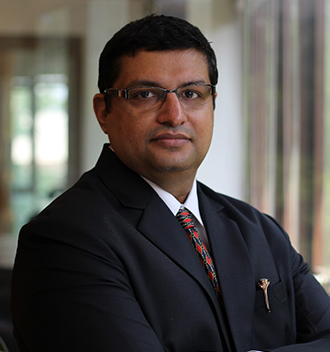
Speaker
Mr. Kuntal Shah
Mr. Kuntal Shah discussed the importance of time-management, making a budget and tracking one's expenses early on so it can not only help use the power of compounding but also make sure one reduces wastage. He also discussed and connected how various books in literature and psychology help one learn about human behaviour and the power of saving and using money wisely. He recommended easy to understand and relate books which will help any listeners perspective about various aspects of one's life.
Mr. Kuntal Shah is a partner at the Oaklane Capital Management LLP and has an opportunistic inclination towards value-oriented and risk-controlled approach to investments. He has been an extremely successful investor over the past 2 decades and his investing success has come from exploiting the inefficiencies inherent in the markets. In the past he has added value through strategic inputs, networking and competitive intelligence, and board level decision making for the investee companies. He was part of a three member principal team supported by 20 professionals looking after a portfolio of $600 mn across various asset classes for a family office.
Financial Literacy 07 | Understanding Capital Markets by Mr. Neeraj Marathe

Saturday, 13th February 2021



Speaker
Mr. Neeraj Marathe
The speaker discussed about various aspects about the capital markets, how companies raise money from the primary market through IPOs, pricing mechanism, share allotment mechanisms, what is a demat account, online platforms such as Zerodha and Groww, how to save through a mutual fund Systematic Investment Plan (SIP), minimum investment under SIP etc.
Mr. Neeraj is a Pune based investor. He has been a full time participant in the capital markets since 2002. He tries to practice value-based investing. As a hobby, Neeraj has taught in various B-schools as a visiting faculty from 2006-2018, taking up subjects such as Security Analysis, Portfolio Management and Behavioural Finance. He is an active contributor at FLAME Investment Lab. He has recently started a new website www.sentinelresearch.in. He is also an avid reader and biker.
Financial Literacy 08 | Asset Classes and The Importance of Interest Rates

Saturday, 20th February 2021


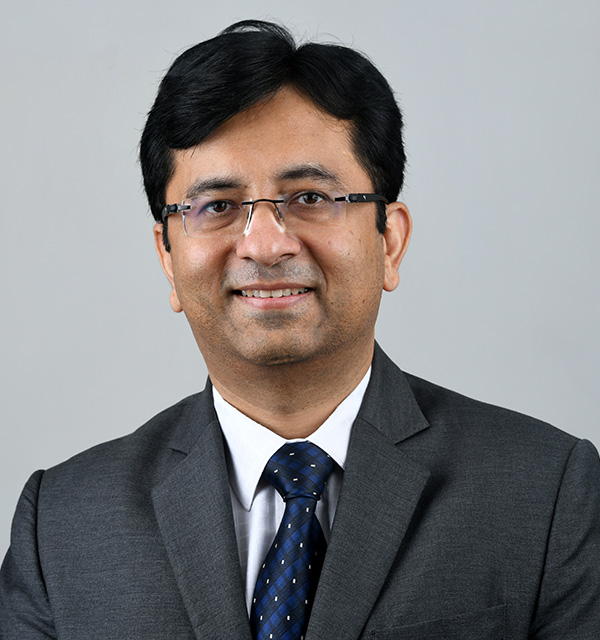
Speaker
Mr. Rajeev Thakkar
Mr. Thakkar, held a riveting session explaining what is a mutual fund?, what is a Net asset Value (NAV)?, how does one invest using Systematic Investment Plans (SIP)?, how does one use loans to purchase assets such as real estate etc. His talk also covered how small savings can help in the future, and what all is required when we plan to make big ticket purchases?
Mr. Rajeev Thakkar is the Associate Director and Chief Investment Officer (CIO) of PPFAS Mutual Fund. He currently manages its flagship scheme titled “Parag Parikh Flexi-Cap Fund”. He is a Chartered Accountant, Cost Accountant and CFA Charterholder.
Mr. Pathak introduced the sessions to the various fields that they could join and what were the qualification requirements. He also suggested that one requires a T approach - that focuses on both depth and breadth of knowledge. This approach fosters that individuals have deep technical understanding coupled with a broader knowledge base in the fundamentals of subjects such as maths, history, psychology, innovation, business and leadership.
CA. Bharat B Pathak is the founding director of Wealth Managers India (Pvt) Ltd, he holds a degree in law from the University of Pune and is a Chartered Accountant (1st rank holder) with a specialization in tax planning. He has over three decades of experience in the financial field, and is a leading financial consultant who manages an AuM over 4,500 crore, he features regularly in press articles of leading business papers, he has held several talks and made presentations at various seminars. He recently won the CNBCTV18 Financial Advisor award.
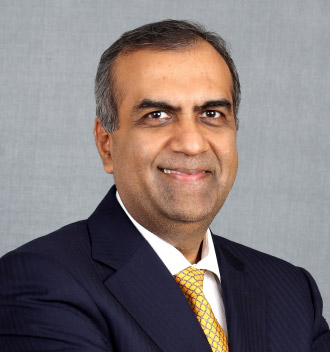
Speaker
Mr. Manish Chokhani
Mr. Chokhani talks about robotics and disruptions caused by technology in the fields of energy, lifesciences, automobiles, manufacturing, financial services and education. He speaks about how solar energy has changed the economics of power generation and the likely impact electric vehicles and artificial intelligence for autonomous driving will have on the automobile industry. He mentions the impact of CRISPR and genome sequencing on delivering better healthcare, he also eluded that in the future that actual surgeries on human beings are likely to be conducted by robots. He touched upon the usage of blockchains, machine learning, artificial intelligence for better delivery of financial services and also broadly covered the Internet of Things (IoT) and Augmented Virtual Reality.
Mr. Manish Chokhani is one of India’s most respected financial market experts having built and led multiple institutions. He is best known for his role as MD & CEO of Enam Securities, an iconic home-grown investment bank that was regarded as the trusted “house banker” to some of India’s best known business group including Infosys, Zee, Birla, Reliance, Vedanta, Raheja and Future groups.
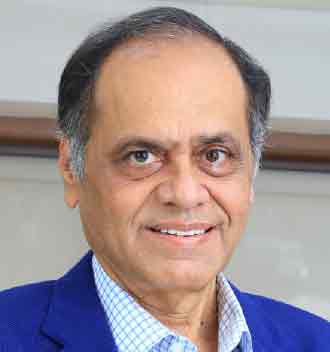
Speaker
Mr. Ramesh Damani
Mr. Damani, the speaker of the session began by stating an example of how one can save consistently and become part of the top percentile of rich Indians. He continued by asking three questions to assess the financial literacy of the attendees, the first question focussed on compounding, the second on how money value is calculated when inflation is a consideration?
Mr. Damani, member of the Bombay Stock Exchange, is one of the most successful investors in India. A proponent of the Buffett style of value investing, Mr. Damani’s views about equity is ardently followed. He is also the Chairman of Avenue Supermarts Ltd. He completed his undergraduate at HR College and post graduate at California State University.

Speaker
Mr. Kuntal Shah
The speaker discussed the five basic elements to identify frauds. He categorized frauds in three major categories such as i) Consumer frauds, ii) Online frauds and iii) Investment frauds. He also shared the attributes for each fraud category such as ticket size, distribution, target audience, sophistication, grievance redressal.
Mr. Kuntal Shah is a partner at the Oaklane Capital Management LLP and has an opportunistic inclination towards value-oriented and risk-controlled approach to investments. He has been an extremely successful investor over the past 2 decades and his investing success has come from exploiting the inefficiencies inherent in the markets. In the past he has added value through strategic inputs, networking and competitive intelligence, and board level decision making for the investee companies. He was part of a three member principal team supported by 20 professionals looking after a portfolio of $600 mn across various asset classes for a family office.
Financial Literacy 13 | Mutual Funds, Equity, Venture Capital and Asset Diversification

Saturday, 10th April 2021


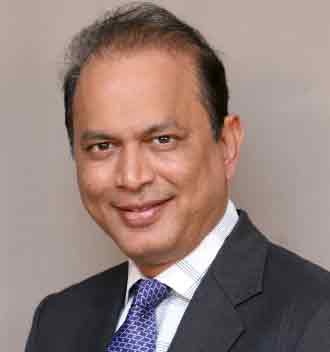
Speaker
Mr. Sunil Singhania
The speaker broadly covered the basics and avenues of investment in this one hour interactive session: a) basics of investment (need for saving, savings plan, right saving formula),
b) investment avenues available to investors according to various asset classes (Equity - equity shares, equity mutual funds, portfolio management scheme; Debt- Public Provident Fund, Bonds, Fixed Deposits, Debt mutual funds; Commodities - Gold, Silver, Crude oil, others; Real estate - Property, REIT (Real Estate Investment Trust), REMF (Real estate mutual fund); Cash equivalents - Liquid funds, Money market instruments, savings bank account etc; and Alternative Investments - Venture Capital, Private Equity etc),
c) asset diversification and their goals i.e. investment in stocks (goal -capital growth, with medium to high risk and an investment horizon over a period of three to five years), Bonds and debentures ( goal - income generation, with low to medium risk and an investment horizon over a period of one to three years), and Money market funds to government securities (goal - capital preservation, low to medium risk and an investment horizon of less than one year)
d) mutual funds (types of funds),
e) angel investments, venture capital and their stages of financing,
f) the key factors relevant to investing (power of systematic investment plans, power of compounding) and finally
g) roles for professionals in the financial world.
Sunil Singhania, CFA, is the Founder of Abakkus Asset Management, LLP, an India-focused Asset Management Company established in 2018. Prior to this, in his role as Global Head – Equities at Reliance Capital Ltd., he oversaw equity assets and provided strategic inputs across Reliance Capital Group of companies including asset management, insurance, AIF and offshore assets. And as CIO – Equities, Singhania led Reliance Mutual Fund equity schemes. Reliance Growth Fund grew over 100 times in less than 22 years under Singhania’s leadership. Furthermore, he led Reliance Nippon Life Asset Management Ltd.’s international efforts and was instrumental in launching India funds in Japan, South Korea, and the UK, besides managing mandates from institutional investors based in the US, Singapore, and other countries. He is currently appointed on the IFRS Capital Market Advisory Committee. (2020-2023). He was the Promoter of The Association of NSE Members of India; a body of stock brokers. He served on the Global board of CFA Institute, USA (2013-2019) and as Chairman of the Investment Committee (2017-2019) of the CFA Institute, USA. He also sat on CFA Institute’s Standards of Practice Council for six years, and was the Founder of the Indian Association of Investment Professionals (now CFA Society India) and served as its President for eight years. He is a CA rank holder and a CFA charter holder and graduated in commerce from the Mumbai University.

Speaker
Mr. Vallabh Bhanshali
A highly interactive session on learning from failures began with an interaction where students answered three questions: 1) What failure you learnt the most from and how it changed your life? 2) What failure has been the hardest to accept and learn from? and 3) Any success that prompted you to learn? The speaker discussed how to learn from failures, what is at the heart of failure, how does one keep learning, the difference between ambition and fantasy and how to benefit from stupidity in the world. He also dwelled upon the fact that each of us has common desires to acquire status, assets and become rich, but the problem arises since resources are limited. He suggested ways on how to deal with these desires such that we don't commit fatal mistakes.
Mr. Vallabh Bhanshali, a thought leader, a reputed businessman and investment banker is the founding Governing Body member of FLAME University. He is the Chairman and Co-Founder of the ENAM group. He served the economy and capital markets of India for over three décades with great distinction and then moved over to the social and spiritual fields.
Inspiring video on persevering no matter how many times you have failed in life: Watch Now
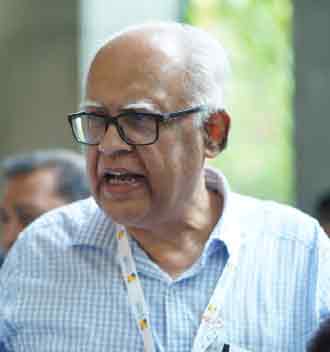
Speaker
Mr. Sanjoy Bhattacharyya
Mr. Bhattacharyya broadly covered the intersections between finance and psychology and how important psychological factors are in decision making. He discussed how to save more, control one's needs, remain flexible in our savings approach, how to remain patient, apply the margin of safety and use the power of compounding. He also dwelled on how outcomes are driven by luck independent of intelligence and effort. He also stressed upon the importance of frugality and humility. Lastly, he focussed on how to understand room for error, where one should learn to think in a probabilistic manner, how to deal with uncertainty and prepare a contingency plan.
Mr. Sanjoy Bhattacharyya is a Partner at Fortuna Capital. He has earned a PGDM from IIM Ahmedabad. He was the erstwhile Chief Investment Officer of HDFC Asset Management Company prior to which he was associated with UBS Warburg. He is a value investor with an abiding interest in behavioral finance. Apart from investing, he has a passion for bridge and the visual arts."



